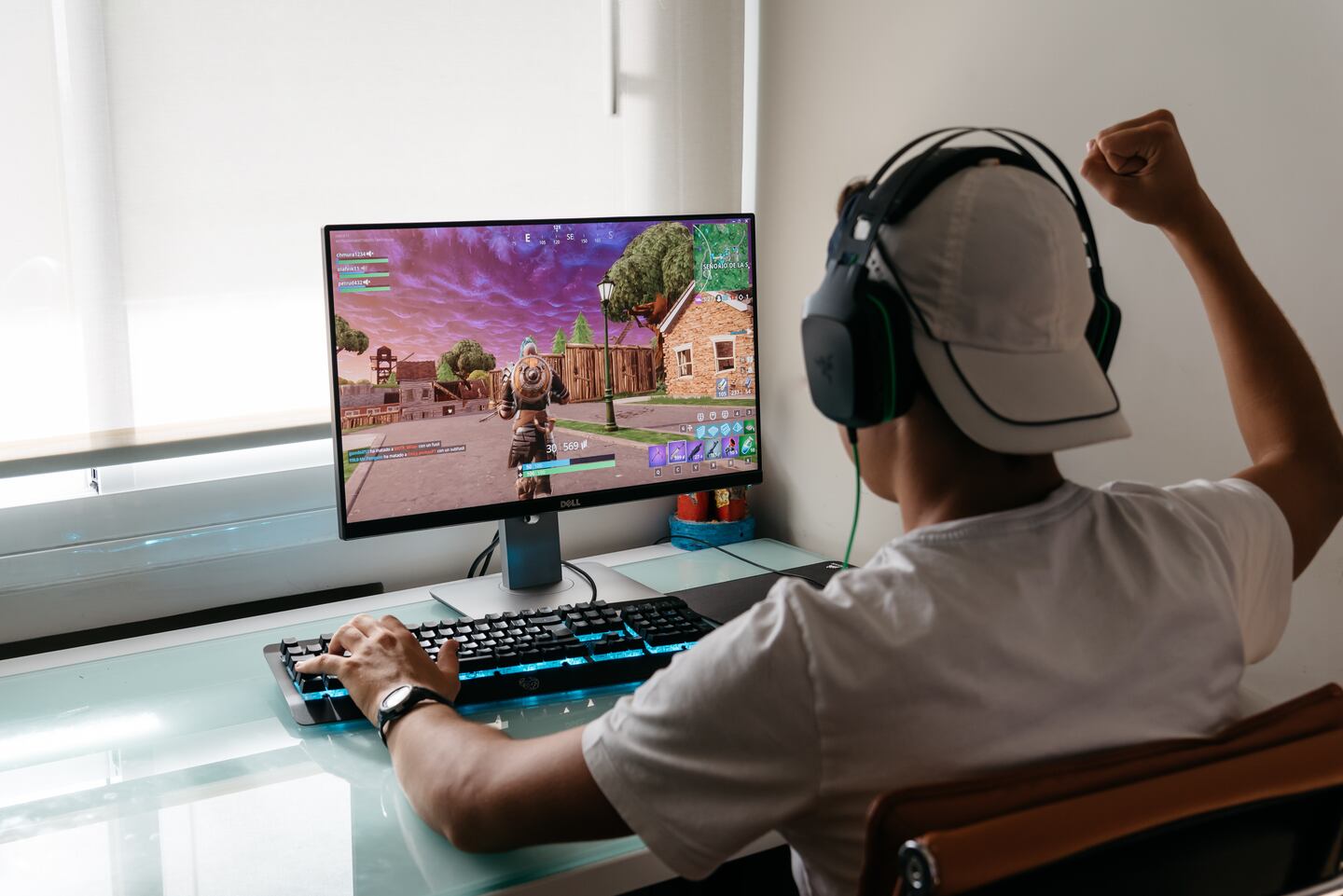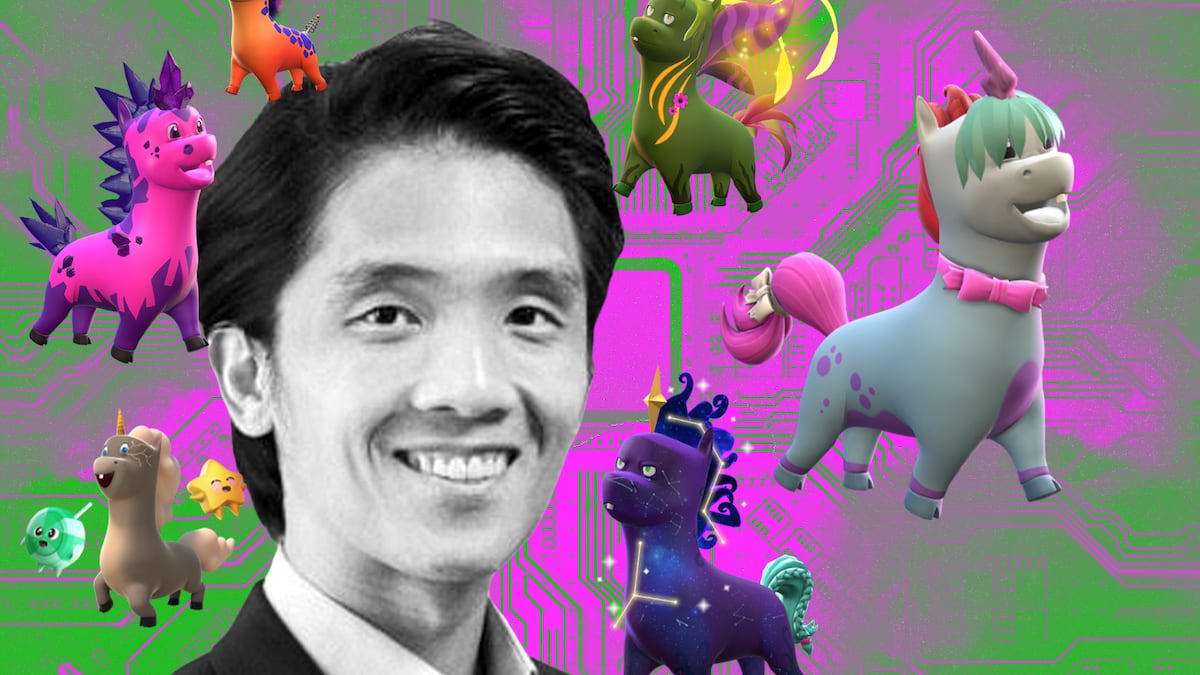- Bitkraft VC Jonathan Huang tells DL News why he still believes in a sector gamers are shunning.
- Web3 proving popular with speculators but players still prefer Fortnite and non-blockchain titles.
- Huang says Asian players are warming to web3 and may be the key to reviving sector.
For many, Jonathan Huang may have the ideal job — he plays online games.
As a principal at Bitkraft Ventures, a San Francisco investment firm, Huang explores a number of titles in his quest for promising game publishers to back.
The venture capital firm has backed the likes of Epic Games, the creator of Fortnite, the multi-player shooter with 239 million active users, and Discord, the social media platform favoured by gamers and DeFi folk that is valued at $15 billion.
Bitkraft has bet $103 million on blockchain-based gaming since 2021. Huang believes the sector has a winning future.
He may be one of the few.
If the digital assets world is trapped in crypto winter then web3 gaming is locked in an ice age.
Why gamers hate NFTs
Onetime pacesetter Axie Infinity is a shell of its former self after its token has lost 91% of its value since March 2022.
Titles such as Tiny Colony and Oath of Peak have shut down. The parent company behind Star Atlas, a multiplayer role-playing game, slashed three-quarters of its workforce in July.
And many gamers dismiss titles that require the purchase of NFTs as money-grabbing scams.
Meanwhile, investment in web3 gaming plunged more than 70% in the third quarter, to $600 million, from the same period last year, according to DappRadar and the Blockchain Game Alliance.
While $600 million is still a big number, Huang and his fellow investors are coming to grips with a fundamental problem — web3 games aren’t much fun to play.
Those that are popular are used mostly by speculators trying to cash in on their tokenomics.
Take Alien Worlds, a title whose entire gameplay consists of clicking one button to mine its token Trilium. It’s the top web3 game on DappRadar’s rankings.
Waiting for a breakout game
Even in the face of all these challenges Huang still believes.
“A lot of web3 games are actually being built right now behind the scenes and it’s very different from the narrative of web3 games two years ago,” he tells DL News in an interview from his base in Singapore.
“We’re seeing a lot of new games that actually look like web2 games now. That’s a very big step forward if you really want to think about mainstream adoption.”
Maybe so, but those waiting for a breakout game in web3 have been burned before. My own quest to find someone who gives me the name of a web3 title when I ask them for their all-time-favourite game remains unfulfilled.
Yet Bitkraft is determined to try. And it does have a track record to build on.
Based in San Francisco, the eight-year-old firm specialises in investing in “synthetic reality,” the nexus of the digital and physical worlds.
That means the metaverse and gaming, and Bitkraft has backed 125 startups, including Discord and Epic Games. Apart from Fortnite, Epic Games has also dabbled in blockchain-based games.
Yet with the hype around the metaverse now gone and web3 in trouble, Bitkraft finds itself a bit of an outlier as a VC firm concentrated in the space. The firm increased its commitment to the sector in 2022 and deployed another $40 million this year.
Top names in its portfolio include Yield Guild Games, Cyball, Bazooka Tango, and AMGI.
Two-person team
The firm’ is looking to buck the trend by focusing on Asia. This year Bitkraft Ventures set up a two-person team in there, with Jin Oh in Seoul and Huang in Singapore.
Oh is the one with the gaming background, having spent the last 20 years working at giants like Riot Games and Activision Blizzard.
Huang is the finance guy, having done a four-year stint as an associate director at Temasek, the Singapore state investment arm, after a spell at Deutsche Bank’s Singapore office.
Asia is, I seem to be constantly reminded, at the forefront of the web3 gaming revolution. From South Korea to Vietnam, the sector has been driven by players who appear to be less fussy about in-game payments than their counterparts in the West.
Maybe it’s because they are more accustomed to paying for in-game items, but players in Asia don’t have a big problem with NFTs
‘Frankly they are very undifferentiated and not very fun to play.’
— Jonathan Huang, Bitkraft
Yet despite Asia comprising almost half of the gaming market, it attracts less than a quarter of VC capital, according to PitchBook. This is the imbalance Bitkraft is aiming to exploit.
But there are challenges.
First up is web3 gaming’s exclusivity. Huang said creators often restrict early access to games to investors, insiders, and holders of specific NFTs. And this is stopping people from seeing their potential.
Web 2.5
“There are less and less of the idle RPGs and card games that were all the rage,” he said, referring to role-playing games. “And frankly they are very undifferentiated and not very fun to play.”
There’s a technology challenge, too. Huang said many web3 games are struggling to explain why they need blockchain at all.
He said many web3 game founders falter when explaining why their work requires blockchain capability or how it enhances the user experience.
The awkward truth is that maybe most games just don’t need the technology.
As a result, many web3 games are just like normal ones with NFT marketplaces where you can buy and sell avatars or land. Huang calls them “web 2.5″.
Without actual blockchain features in-game, founders fall back on well-worn tropes to explain why their game is better with web3 such as “interoperability” and “true ownership.”
Interoperability is essentially the idea that you can take NFTs used in one game and then use them in another.
While this can work for games made by the same company perhaps, in practice it makes zero sense. You can’t take the Master Sword from Legend of Zelda and use it in Call of Duty for purely technical reasons.
What sort of damage capabilities would it be assigned? How will it interact with other in-game items? These parameters would need to be established for every single game you might use it in.

There are companies trying to get around this. But it involves a painstaking process where you have several NFTs compatible with different platforms rolled into one.
So yes, you could use your Decentraland wearables on The Sandbox, but they’re copies — not the same item.
Then we come to true ownership. This is the idea that if your in-game items are NFTs, the game company cannot take them away from you. You can trade them freely and do with them as you please.
User experience
“Many players already trade in-game assets like hero skins on Dota. While these aren’t NFTs, and players might not have ‘real’ ownership, the technology isn’t novel,” Huang said.
It’s a moot point anyway. For Huang, evaluating which games to invest in isn’t about the technology. He has an iPhone. He doesn’t know how it works. The important thing for him is the user experience, the gameplay.
Right now the web3 games favoured by speculators, not gamers, still rule. Until that changes, Bitkraft and other investors may be be hard pressed to ever cash in.
Callan Quinn, DL News’ Hong Kong correspondent, covers the crypto industry in Asia. Have a tip? Contact the author at callan@dlnews.com.
